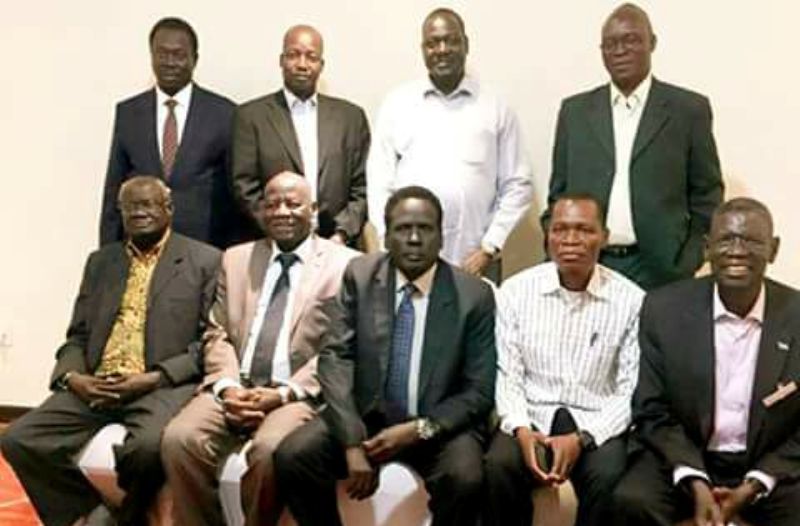SSOA parties defend South Sudan peace pact, call on “splinters” to rejoin them

September 16, 2018 (JUBA) – The South Sudan Opposition Alliance (SSOA) condemned the rejection of the revitalized peace agreement by some groups member of the umbrella and called them to join them to continue the peaceful struggle for the remaining reforms.
On Friday, four groups and Pagan A. Oketch former SPLM secretary general and leader of FDs group which endorsed the deal, issued a statement distancing themselves from the signed peace agreement saying it failed to address the root causes of the five-year conflict and accountability.
The four groups are the National Salvation Front (NAS) of Gen. Thomas C. Swaka, People’s Democratic Movement (PDM) chaired by Hakim Dario, National Democratic Movement (NDM) led by Emanuel Aban and the United Democratic Republic Alliance (UDRA) of Gatwech K. Thich.
In a response to this rejection released on Sunday, the other six groups regretted this statement saying by doing so the four declared a spilt with the SSOA.
“This action from that group has caused splits within their organizations and we know that the majority of them are for peace and are still with SSOA,” said the statement signed by Gabriel Chang Changson the alliance chair and leader of the FDP/SSAF, Lam Akol of the NDM, Bangasi Joseph Bakosoro of SSNMC, Hussein Abdel Bagi representing the SSPM/A, Bapiny Montuil Wegjang of SSLM/A and Peter Gadet Yak of the SSUM/A.
They further rejected the accusation of betraying the plight of the South Sudanese wondering how the splinters who are “in the comfort of foreign hands” have the audacity to accuse their colleagues of betraying these people.
Some of the SSOA leaders who rejected the deal are residing in the United States. Also, the NAS leader Thomas Sawaka who is visiting nowadays the United States is accused of organizing the meetings with the Diaspora to raise money to prepare for war.
The non-signatories are also accused of seeking the political support of the Troika countries for their position hostile to the revitalized peace agreement.
The six opposition leaders said that no one can get all that he wants at the negotiating table but this revitalized peace deal opened the door to achieving the remaining goals through political struggle.
They further called on the holdout groups to reconsider their position from the deal and to rejoin them stressing on the need for the unity of the opposition groups to achieve the shared objectives.
“We forgive them for all the ugly things they said about us and extend an olive branch to them to come back to the fold of SSOA”.
In March 2018, political opposition groups and some armed groups established the SSOA in order to impose their political claims at the negotiating table which was dominated by the agenda of the government and the main armed opposition group SPLM-IO.
The heteroclite coalition, however, remained very fragile during the revitalization process, rifts emerged several times between the groups also several factions split or delegates to the peace process sacked.
The four factions and Pagan Amum reject the revitalized deal mainly because it failed to establish a federal system that protects the tribal borders during the transitional period.
The matter has to be discussed during the transitional period and if no agreement reached, a referendum on the number of states should be held after redefining the tribal border in line with the 1956 maps.
However, the non-signatories say they do not trust the government as they expect some manipulation in the process.
(ST)
